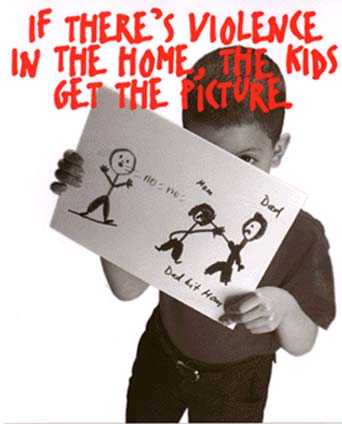Domestic and Sexual Violence
Domestic and intimate partner violence involves physical and sexual attacks against women in the home, within the family or within an intimate relationship. Women are more at risk of experiencing violence in intimate relationships than anywhere else.In no country in the world are women safe from this type of violence. Out of ten counties surveyed in a 2005 study of the World Health Organization (WHO), more than 50 per cent of women in Bangladesh, Ethiopia, Peru and Tanzania reported having been subjected to physical or sexual violence by intimate partners, with figures reaching staggering 71 per cent in rural Ethiopia. Only in one country (Japan) did less than 20 per cent of women report incidents of domestic violence.
An earlier WHO study puts the number of women physically abused by their partners or ex-partners at 30 per cent in the UK, and 22 per cent in the US.Based on several surveys from around the world, half of the women who die from homicides are killed by their current or former husbands or partners. Women are killed by people they know and die from guns violence, beatings and burns among numerous other forms of abuse. A study conducted in Sao Paulo, Brazil reported that 13 per cent of deaths of women of reproductive age were homicides, of which 60 per cent were committed by the victims’ partners.In the USA, 700,000 women are raped or sexually assaulted each year, with 14.8 per cent of women reporting having been raped before the age of 17. In a randomly selected study of nearly 1,200 ninth-grade students in Geneva, Switzerland, 20 per cent of girls revealed they had experienced at least one incident of physical sexual abuse. This form of sexual violence also extends beyond the domestic domain.
Although many countries now have legislation that addresses domestic violence, high levels of violence still persist. There is clearly a need for greater focus on implementation and enforcement of legislation, and an end to laws that emphasize family reunification over the rights of women and girls.In many societies, the legal system and community attitudes add to the trauma rape survivors experience. Women are often held responsible for the violence against them, and in many places laws contain loopholes which allow the perpetrators to act with impunity. In a number of countries, a rapist can go free under the Penal Code if he proposes to marry the victim and she consents. In Pakistan and many other Islamic countries, ordinances require women reporting rape to provide a set number of credible male witnesses to verify the crime. Victims unable to provide these witnesses are often charged instead with adultery.
Tuesday, April 10, 2007
Subscribe to:
Post Comments (Atom)
Leaving Abusers Costs So Much - Donate & Help a Victim


















No comments:
Post a Comment